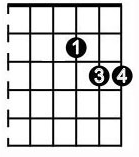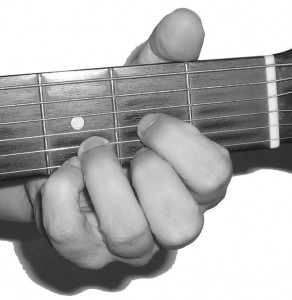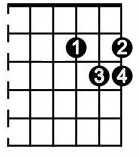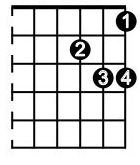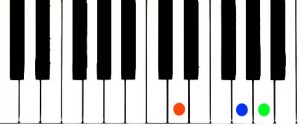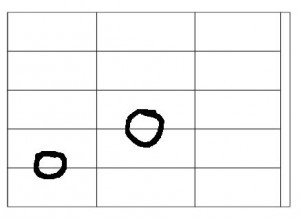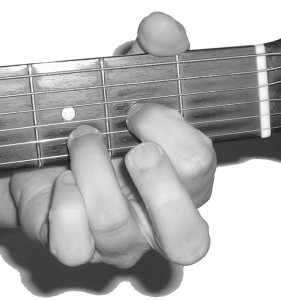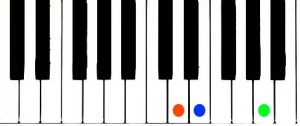Suspended chords explained: In a major or minor chord we have 3 notes that give us the chord spelling.
To create a suspended chord we need to replace the ‘3rd‘ in this case with the ‘4th‘.
For more information read the rest at bottom of page.
Open Chord: Dsus4
The box diagram below shows how to hold the Dsus4 if you’re previous chord is a D Major.
The box diagram below shows how to hold the Dsus4 if you’re previous chord is a D Minor.
Piano,
Chord Spelling: D, G, A
More info:
In the case of D major this would be D, F#, A
In the case of D minor this would be D, F, A
1st, 3rd, 5th = 3rd = maj 3rd(Dmajor) or min 3rd(Dminor)
The difference in a sus 4 chord is that the ‘3rd’ is suspended.
This means that it is replaced by the 4th.
The scale of D major: D, E, F#, G, A, B, C#, D
The scale of D minor: D, E, F, G, A, Bb, C, D
As you can see the ‘sus 4 ‘ is created by replacing the ‘3rd‘ with the ‘4th‘
Suspended chords explained: In a major or minor chord we have 3 notes that give us the chord spelling.
To create a suspended chord we need to replace the ‘3rd‘ in this case with the ‘2nd‘.
For more information read the rest at bottom of page.
Open Chord: Dsus2
Piano,
Chord Spelling: D, E, A
More info:
In the case of D major this would be D, F#, A
In the case of D minor this would be D, F, A
1st, 3rd, 5th = 3rd = maj 3rd(Dmajor) or min 3rd(Dminor)
The difference in a sus 2 chord is that the ‘3rd’ is suspended.
This means that it is replaced by the 2nd.
The scale of D major: D, E, F#, G, A, B, C#, D
The scale of D minor: D, E, F, G, A, Bb, C, D
As you can see the ‘sus 2 ‘ is created by replacing the ‘3rd‘ with the ‘2nd‘
